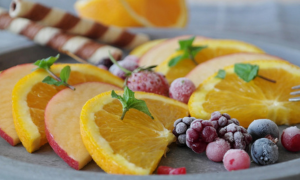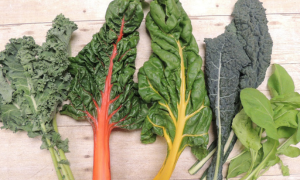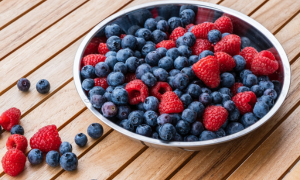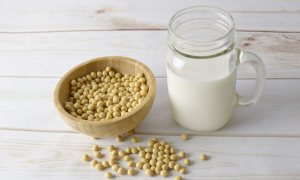
May 07 2024.
views 267When it comes to nutrition, it is important to not buy into every tip you hear. To separate fact from fiction to help you make healthier choices, let's debunk some common myths about nutrition!
All carbs should be avoided
The common belief that carbs are our enemy because they cause weight gain is not completely accurate.

Carbs are an important nutrient which should be included in a healthy balanced diet. It provides us with glucose, which is the key to physical activity and supports bodily functions by providing energy. Therefore, it’s essential to include carbs in your diet.
However, in simple carbs, the essential nutrients are removed hence it’s quick to be digested, making you hungry. Consuming simple carbs can be skipped as it may contribute to weight gain.
Skipping meals helps you lose weight
This myth is not just unhealthy but also detrimental to your well-being, potentially leading to illness and weight gain. The opposite of your intentions!

Skipping meals will make you develop disease conditions like diabetes, gastritis, malnutrition, fatigue, insomnia and also depression.
Studies have also shown that people who skip meals tend to gain weight faster than people who eat healthy meals. This is because it can cause your metabolism to slow down which will cause you to gain weight and also make you hungrier pushing you to overeat in your next meal. Therefore, prioritising regular, balanced meals is key to achieving and maintaining a healthy weight and overall well-being.
Snacking is bad for you
When hunger strikes between meals, snacking often seems like the go-to solution. However, it’s a common misconception that all snacks are inherently bad for you.

You should consider which snacks you decide to consume. While nuts, fruits, yoghurt and veggies like carrots are nutritious, you can avoid snacks like soda, doughnuts, baked chips, and sugary snacks as they can cause weight gain and disease conditions.
Snacking at night is unhealthy
Why do you snack at night? Is it hunger? Craving? Or is it just boredom?

Whatever your reason might be, the good news is that late-night snacking is not always unhealthy… You will gain weight depending on the food you eat and not depending on the time of the day as the body metabolizes food the same way regardless of the time of the day.
Coffee is bad for health
Many people depend on coffee to get energised in the morning and throughout the day. This can bring you many health benefits, proving the myth wrong.

Drinking coffee lowers the risk of type-2 diabetes, heart disease, chronic disease and also diseases such as Parkinson’s disease and depression.
Drinking about 400 milligrams of caffeine throughout the day (4-5 cups of coffee) is safe for healthy adults. However, drinking too much-caffeinated coffee beyond the limits or coffee addiction may cause insomnia, anxiety, hypertension and gastrointestinal diseases. Therefore it’s important to control the caffeine intake while going on with your day.
Superfoods are foods that offer maximum nutritional benefits for minimal calories. Dietitian Czerwony states that superfoods help promote health by increasing your immune function and decreasing your chance of disease, prevention or progression.
Superfoods contain vitamins, minerals and antioxidants. Most of these are plant-based products and including these as a part of daily nutritional intake along with a balanced diet will be beneficial for the health and wellbeing of a person.
Let’s talk about the top 3 superfoods, their benefits and how to include them in your diet.
Dark green leafy vegetables
Dark green leafy vegetables are rich in nutrients such as folate, zinc, magnesium, vitamins C and K, carotenoids and fibres.

Including these in your daily diet can reduce the risk of chronic illnesses including heart disease and type-2 diabetes and also prevent constipation and promote a healthy digestive tract.
Leafy greens include broccoli, cabbage, kale, spinach, arugula, swiss chard, beet greens etc. Dietitians suggest consuming at least 1.5 cups of dark green leafy vegetables daily.
Berries
Berries are rich in fibres, flavonoids, magnesium, potassium, vitamin C and antioxidants.

Antioxidants help fight damage in cells and it also improves the health of the heart. There are different types of berries;
Eating a cup of berries adds a huge nutritional value to your daily diet. These will be a great healthy midnight snack for you!
Soy
Soy is a high-quality protein and is also rich in folate, copper, manganese, vitamin B1 and K, fibres and isoflavones. Soy foods reduce the risk of cardiovascular disease, stroke, coronary artery disease, some cancers, and age-related memory loss while increasing bone mineral density during menopause reducing bone loss.

Consumption of about 25g of soy food can do wonders for your health.
0 Comments